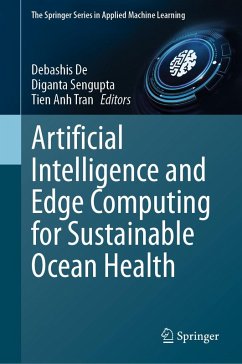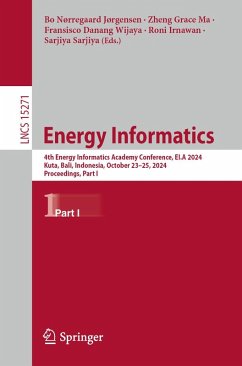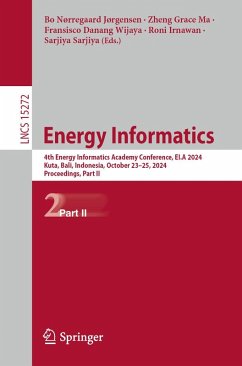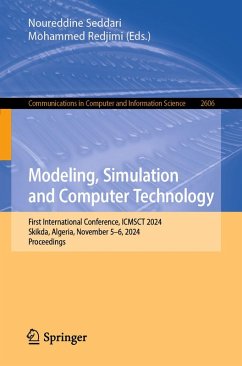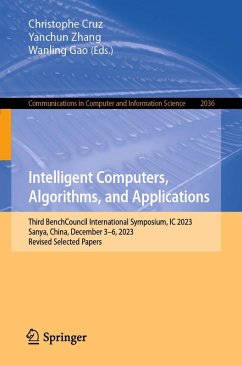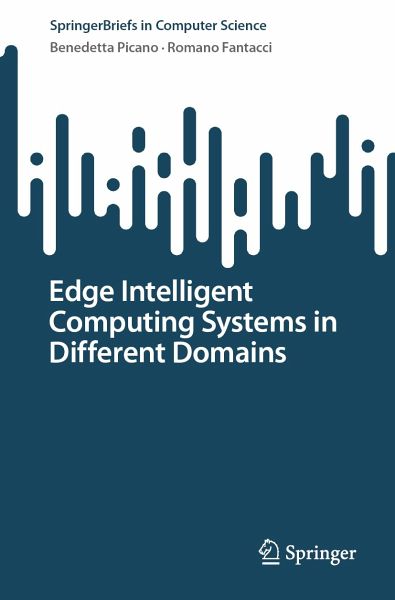
Edge Intelligent Computing Systems in Different Domains (eBook, PDF)
Versandkostenfrei!
Sofort per Download lieferbar
40,95 €
inkl. MwSt.
Weitere Ausgaben:

PAYBACK Punkte
20 °P sammeln!
This book provides a comprehensive and systematic exploration of next-generation Edge Intelligence (EI) Networks. It delves deep into the critical design considerations within this context, emphasizing the necessity for functional and dependable interactions between networking strategies and the diverse application scenarios. This should help assist to encompass a wide range of environments.This book also discusses topics such as resource optimization, incentive mechanisms, channel prediction and cutting-edge technologies, which includes digital twins and advanced machine learning techniques. ...
This book provides a comprehensive and systematic exploration of next-generation Edge Intelligence (EI) Networks. It delves deep into the critical design considerations within this context, emphasizing the necessity for functional and dependable interactions between networking strategies and the diverse application scenarios. This should help assist to encompass a wide range of environments.
This book also discusses topics such as resource optimization, incentive mechanisms, channel prediction and cutting-edge technologies, which includes digital twins and advanced machine learning techniques. It underscores the importance of functional integration to facilitate meaningful collaborations between networks and systems, while operating across heterogeneous environments aiming support novel and disruptive human-oriented services and applications. Valuable insights into the stringent requirements for intelligence capabilities, communication latency and real-time response are discussed. This characterizes the new EI era, driving the creation of comprehensive cross-domain architectural ecosystems that infuse human-like intelligence into every aspect of emerging EI systems.
This book primarily targets advanced-level students as well as postdoctoral researchers, who are new to this field and are searching for a comprehensive understanding of emerging EI systems. Practitioners seeking guidance in the development and implementation of EI systems in practical contexts will also benefit from this book.
This book also discusses topics such as resource optimization, incentive mechanisms, channel prediction and cutting-edge technologies, which includes digital twins and advanced machine learning techniques. It underscores the importance of functional integration to facilitate meaningful collaborations between networks and systems, while operating across heterogeneous environments aiming support novel and disruptive human-oriented services and applications. Valuable insights into the stringent requirements for intelligence capabilities, communication latency and real-time response are discussed. This characterizes the new EI era, driving the creation of comprehensive cross-domain architectural ecosystems that infuse human-like intelligence into every aspect of emerging EI systems.
This book primarily targets advanced-level students as well as postdoctoral researchers, who are new to this field and are searching for a comprehensive understanding of emerging EI systems. Practitioners seeking guidance in the development and implementation of EI systems in practical contexts will also benefit from this book.
Dieser Download kann aus rechtlichen Gründen nur mit Rechnungsadresse in A, B, BG, CY, CZ, D, DK, EW, E, FIN, F, GR, HR, H, IRL, I, LT, L, LR, M, NL, PL, P, R, S, SLO, SK ausgeliefert werden.



